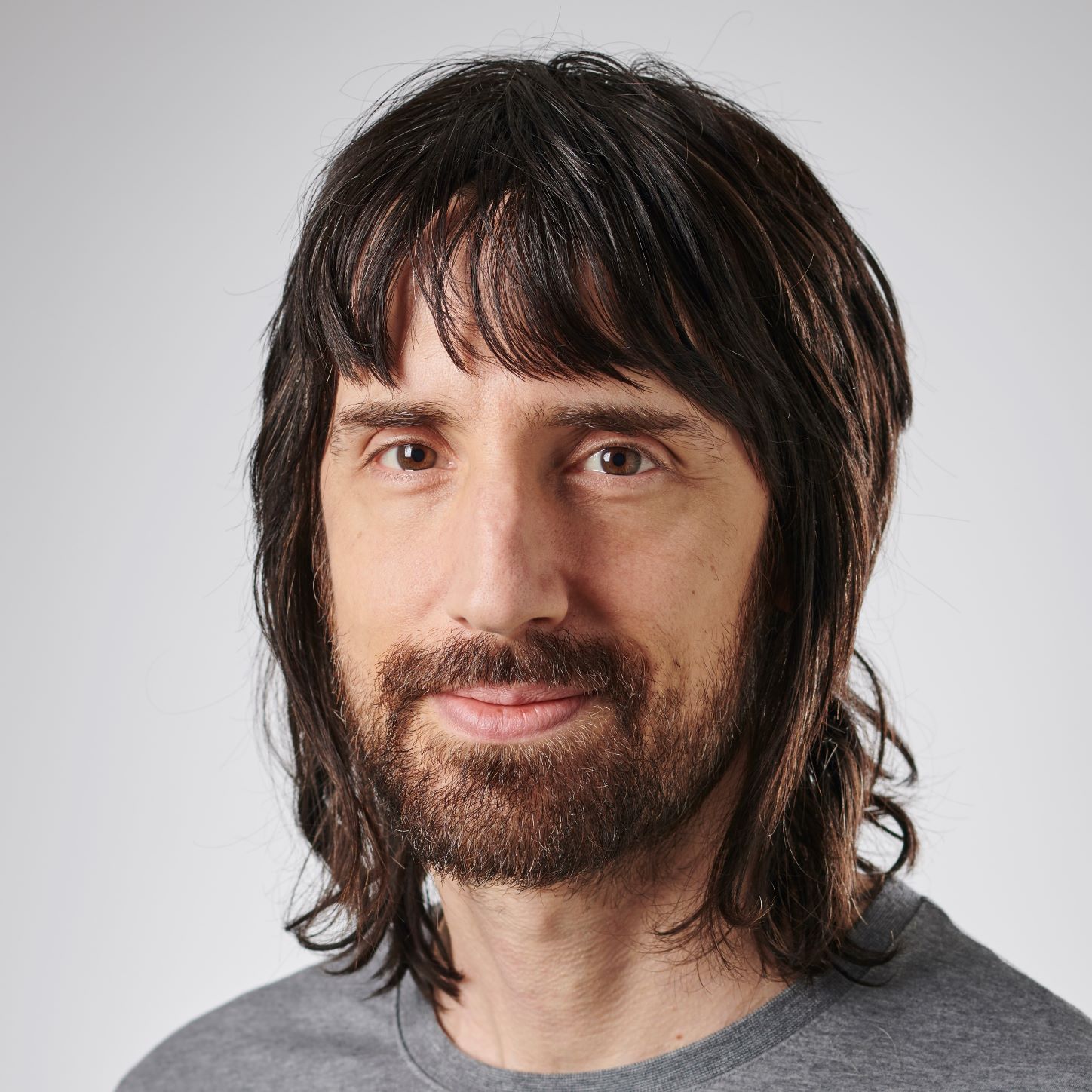Dave Hill: “We were always thinking outside the box, but we were also conscious of entertainment”
The Slade guitarist talks first guitars, Chas Chandler and rebooting the band
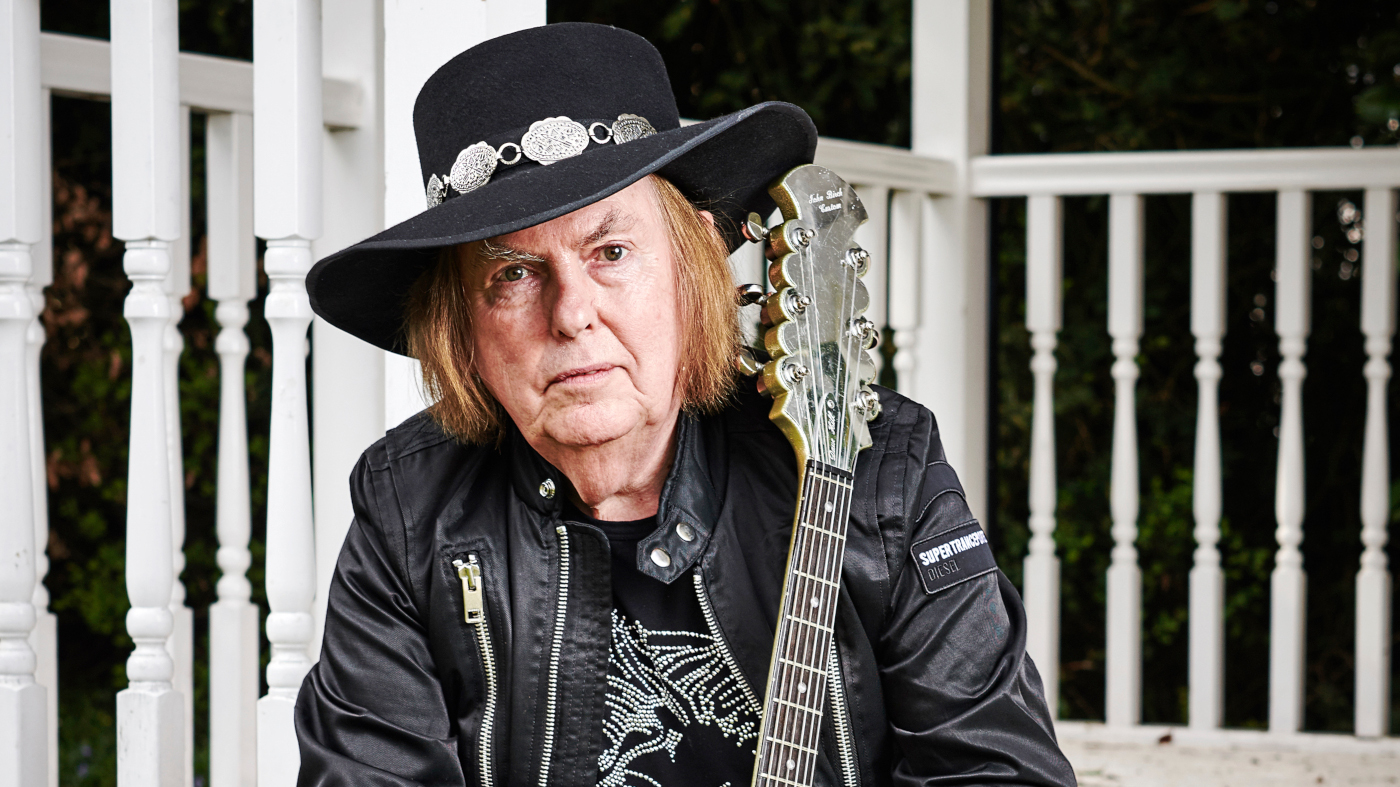
Dave Hill shot to fame in the 70s with national glam-rock treasures Slade as they exploded in the UK charts with no less than 13 Top 10 singles.
He acquired his first guitar in 1959 at age 13, and this year marks the 60th anniversary of Dave Hill the guitarist - a man who, while touring with Slade to this day, is still very much feeling the noize.
We caught up with Dave on home turf in his native Black Country to reflect upon the glam, the glitz and the guitarz...
My First Guitar
“My first guitar was a really dreadful acoustic from the Kays catalogue. I was only 13 and I knew I had music in me, but it wasn’t the piano, it wasn’t the violin, and it certainly wasn’t the recorder.
"I spoke to dad and he said, ‘I don’t want to be wasting money buying expensive guitars if you’re not going to continue with it. I’ll buy you this one [in the catalogue].’
I tried playing it upside down, so dad said, ‘I think you’re going to need some lessons’
“It turned up in a cardboard box and, because I’m left-handed, I tried playing it upside down, so dad said, ‘I think you’re going to need some lessons. There’s a jazz guitarist at your school and he’s teaching a few kids how to play acoustic. I’ll tell you what, as it’s five bob a lesson, you put in half a crown from your paper round, and I’ll put half a crown in.’
"When I turned up at the lesson with this guitar, the teacher said, ‘The first thing you have to learn is to play it the right way around’. I said, ‘But I’m left-handed,’ and he told me, ‘It doesn’t matter - you’ll get used to it.’ And I did.”
Get the MusicRadar Newsletter
Want all the hottest music and gear news, reviews, deals, features and more, direct to your inbox? Sign up here.
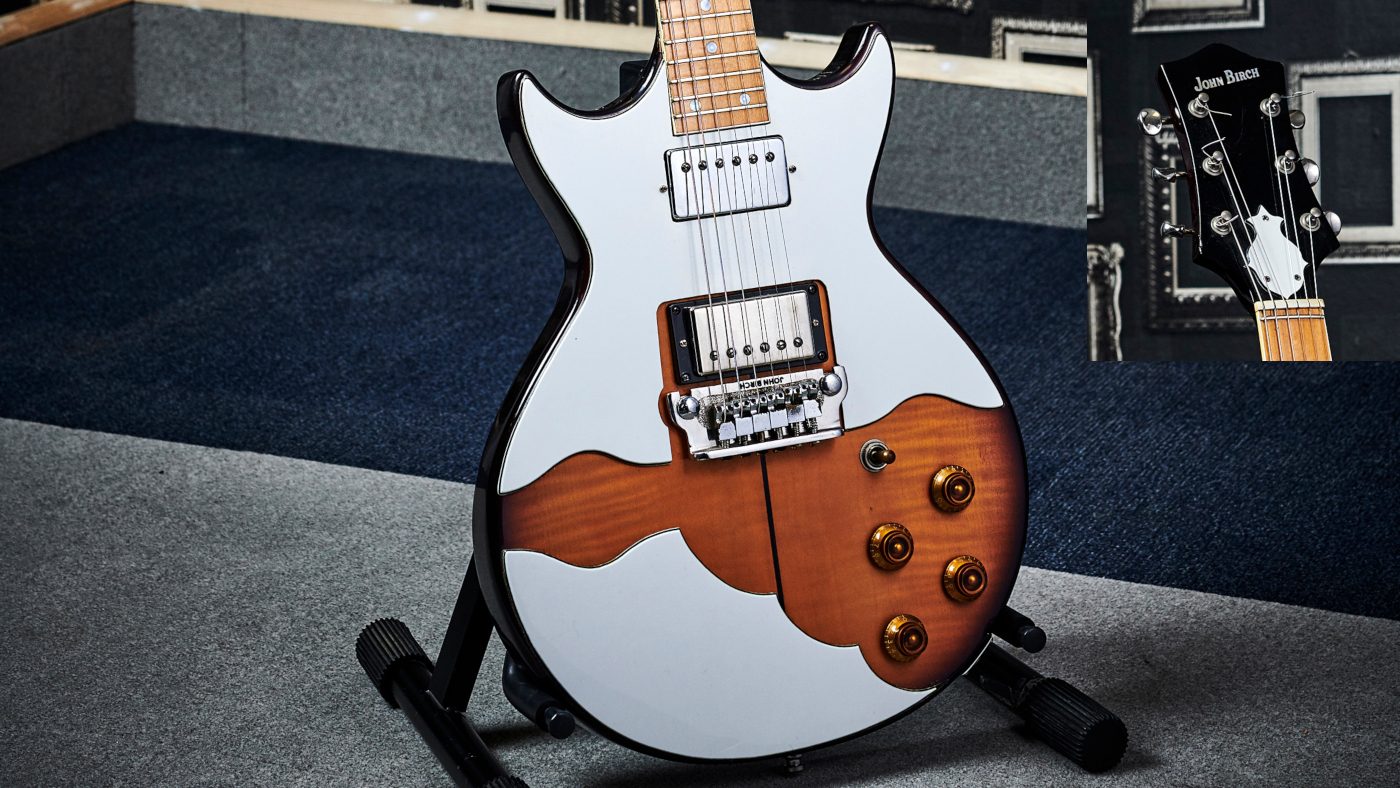
This Sam Li hybrid guitar has been a mainstay of Dave’s since the 60s. “Neville Marten and I named it the ‘Dad’s Guitar’,” recalls Dave. “It was £220 in 1969. That was several months’ wages for a working man like dad. But he believed in me”
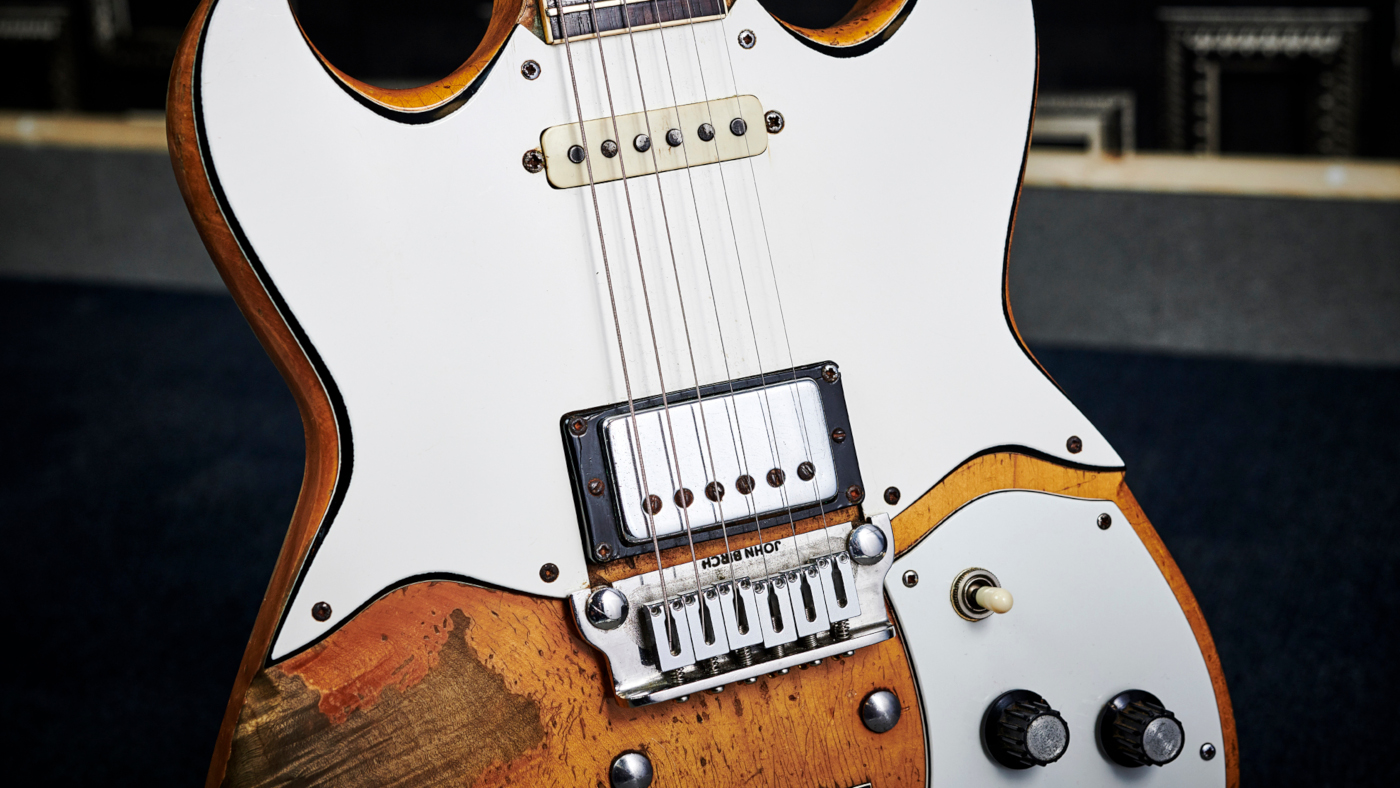
“The humbucker is an old PAF and I think the single-coil pickup might be from a Fender Jaguar or an old Vox guitar. It’s had a few bridges, but this one came from John Birch”
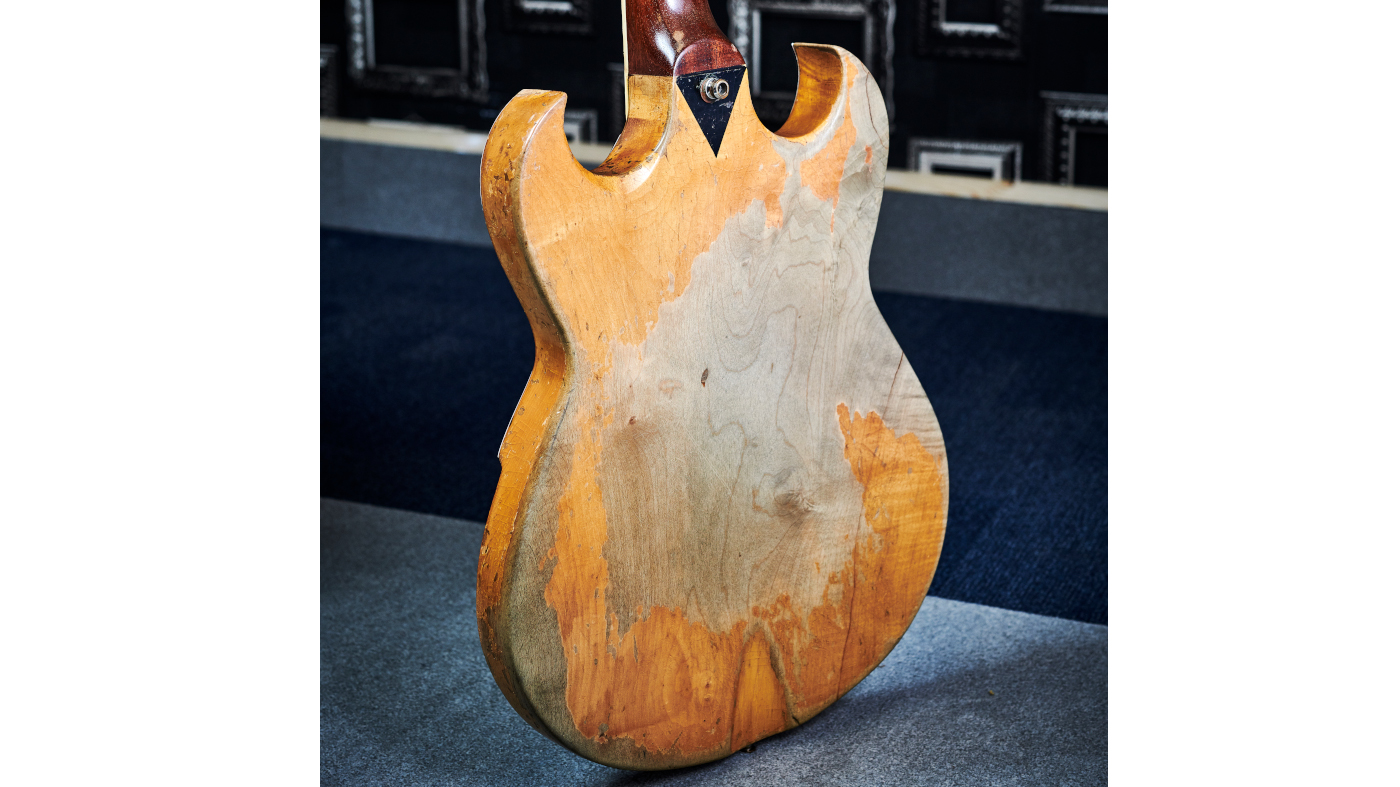
The rear of the solid maple body reveals chamfered double-cutaways and a career’s worth of playing wear. “It has a cut and a brightness about it. It’s like an SG body, but it’s fatter”
Starting With Skiffle
“When I started playing guitar in 1959, it was all skiffle. My first band was a skiffle band called The Shamrocks. My best mate, Tony, encouraged me to get my own acoustic guitar so we could get it together. The first song we learnt was Tell Laura I Love Her and from that we started to formulate something. We used to go up the youth centre on a Sunday morning and have a go.
“From those early beginnings, I started to move towards ‘the twang’ - I’m talking Duane Eddy and Eddie Cochran, then Buddy Holly, then The Shadows. By this point, I’d moved up a grade to electric guitar and we were learning to play FBI by The Shadows.
"Anyway, it started to work and we started gigging. That’s the strange thing about bands: you never know how it’s going to work out. You just do it. Years later I spoke to Keith, the drummer, and he said, ‘The thing is, Dave, you always knew what you wanted.’ I never realised that, but the one thing I do know is, I’ve always pushed forward with the journey. It’s still going on now.”
Rock ’N’ Roll Revelations
“In the early 60s, The Shadows and Cliff [Richard] were in the charts and it seemed like they were the big deal. Cliff was sort of an English Elvis and Hank [Marvin] was the guitar player people would go to because he had a Fender and most people had never seen a Strat before.
"When the solidbody [electric guitar] came to the UK, it was like a revelation. In those days, it wasn’t like it is now. Back then, you’d go to the local music shop and there were hardly any guitars on the wall because most people were in big bands.
Before Chuck Berry, everybody seemed to be playing country and western-style open chords
“At the same time, a lot of American music was coming over. It was like a melting pot. There was all the swing piano stuff like Fats Domino and Jerry Lee Lewis, and along with that came rock ’n’ roll bands like Bill Haley & His Comets. When electric blues and Chuck Berry arrived, we were like, ‘Wow! Have you heard this guy?’
"I imagine Keith Richards was listening to Chuck Berry around that time. That’s when I learned the barre chord. And that has a lot to do with Slade’s music. When I met Don [Powell], I was doing the barre chord, but before Chuck, everybody seemed to be playing country and western-style open chords. It was all a bit C, F, A minor, G...”
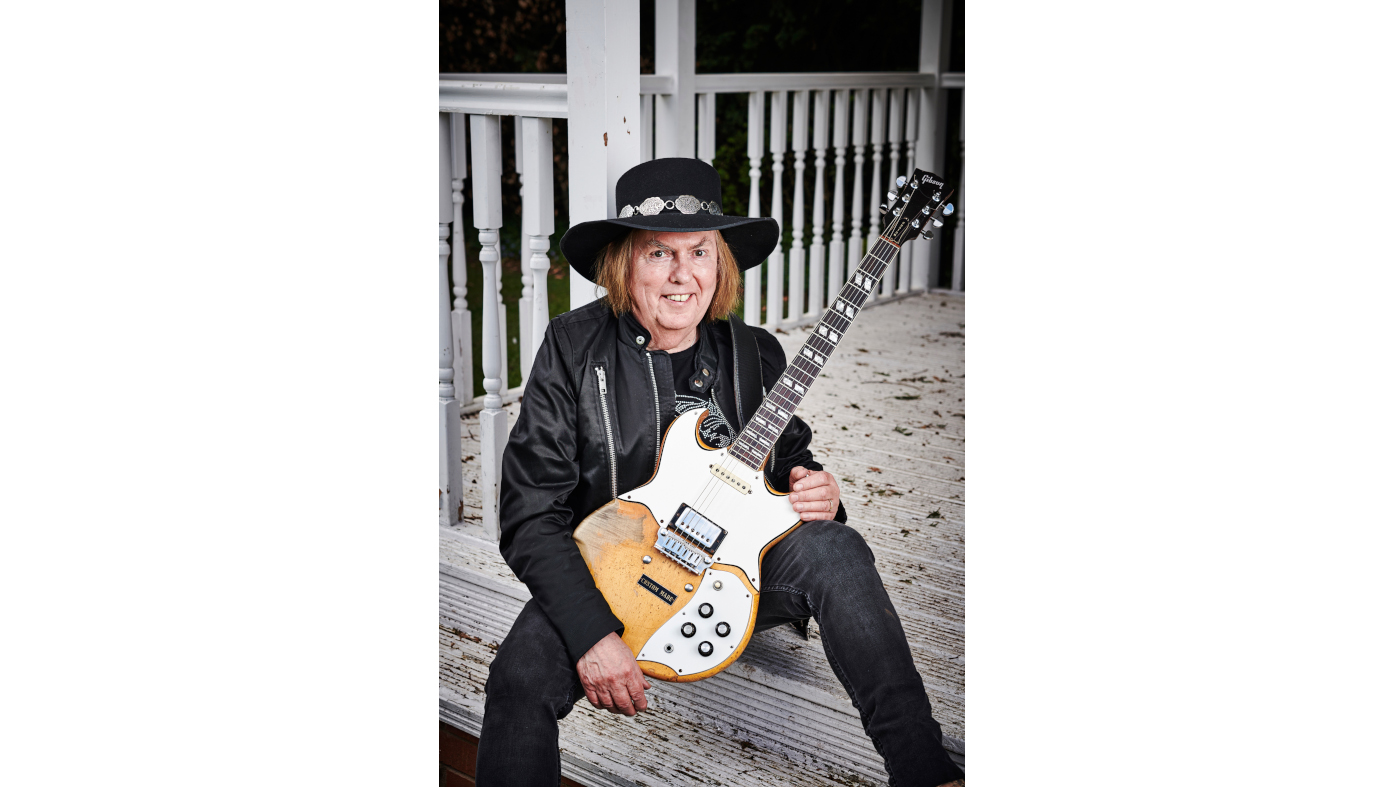
The Best Day Of My Life
“I think the best day of my life was in 1963 when I told mom and dad, ‘I really want to do this,’ and from that day on I’ve not really stopped. I was 18 and I’d been in an office job filing - very badly - for three years.
"They um’d and ah’d about it, but mom and dad knew I could play, and dad really liked Hank Marvin - everyone copped an ear from Hank. He’d say, ‘That’s pretty good, son.’ The Beatles had made it and I thought, ‘That’s really what I want to do.’
"I was looking at these four guys and imagining how great it must be to be in a band and not have to work a day job. I’d met Don Powell by that time and his band had been offered a gig in Germany. I was thinking, ‘Wow! The Beatles went to Germany!’ I’d met him and they’d all got slightly longer hair. And you couldn’t have long hair in an office.
"It was the best time because I could grow my hair and, as I lived with my parents, I didn’t have to worry about money. I had the freedom of just going off playing music and travelling in an Austin J2 van. The bloody thing had no windows and the only warm place was at the front in the middle near the engine, but it doesn’t matter when you’re 18.”
Ain’t Got The Blues No More
“We had a lot of strong melodies and my style is in the songs. Slade’s music is very major/minor - a bit like The Beatles - and everything’s always moving [plays riffs from Cum On Feel The Noize and Mama Weer All Crazee Now]. We didn’t use weird tunings, but we’d do quirky things like leaving open strings in and we’d often play unusual chords.
We’re a rock ’n’ roll band, but we don’t play 12 bars. Like a lot of bands, we went through the blues prior to success
“We’re a rock ’n’ roll band, but we don’t play 12 bars. Like a lot of bands, we went through the blues prior to success. We were listening to BB King, Josh White and Sonny Boy Williamson [II], but we moved away from that.
"We loved Howlin’ Wolf and Muddy Waters and Lonnie Johnson, and we took an interest in it, but it’s different when you’re an English person. I think we’re a small country and we’ve got a lot of good people who’ve listened to the stuff from America, but the point is, we learned from America and gave back something different.”
Chas Chandler
“Chas Chandler was one of these people who always looked for originality. The Animals were very much into the early blues stuff and they understood the records. He was very experienced in old rock ’n’ roll music. It wasn’t overproduced. It was all about the excitement - which was what Slade had. We were raw.
"Although we had the glamorous side, we were quite a serious band and we had a definite drive. Chas always said, ‘We’re trying to get your live sound on record,’ and we never brought anybody in to do overdubs.
“He first saw us in a small club in London called Rasputin’s Club. I remember he just sat there and watched us. We were thinking, ‘Wow! It’s Chas Chandler - that’s Jimi Hendrix’s manager!’
"Then he got up and walked over to us and said, ‘I think you’re great.’ And that was it. From that point on, he got involved with us [as manager and producer]. He said something to me early on: ‘If you want to play like Hendrix, you’d better be better than him.’
"Well, I never wanted to play like Hendrix, because I was nothing like Hendrix; I always wanted to have a style of my own. I think one of the best things he ever did for us was to encourage us to write our own songs.
"He said, ‘You’ve learnt all these songs by other people. Now put it into your own music.’ It was just after that when Jim Lea and Noddy Holder wrote our first No 1, Coz I Luv You [1971].”
![John Birch Super Yob reissue: “Marco Pirroni bought the original. This one has [LED fretboard markers] and it’s got a laser in the headstock”](https://cdn.mos.cms.futurecdn.net/nb8E5vLQSBWhBWFgZXBEA9.jpg)
Merry Xmas Everybody (Again)...
“Some people might say, ‘It’s a pity you made the Christmas song because it detracts from all the other great records you made.’ I’d say it’s a double-edged sword: it wasn’t the total purpose of the band, but it was a great idea at the right time and people will always remember us for something good.
"There may be an emphasis because of a certain song, but if you look at the body of work we’ve done, we made strong albums. Even our B-sides were never so-so B-sides. We made Merry Xmas Everybody in New York in the heat of July [1973] at the Record Plant.
"John Lennon cancelled his studio time and we took it. He popped in when Chas was mixing something and said, ‘I like him. He sounds like me.’ I think we used his Mellotron for the organ intro.”
Seriously Fun
It had become very indulgent with bands doing long, boring hippy-dippy guitar solos. Whereas we were like, ‘We don’t want to hear that’
“Slade was about the whole; we were the sum of its parts. We were a serious group and we were always thinking outside the box, but we were also conscious of entertainment. Early on, we used to do songs like Nights In White Satin and some Frank Zappa tracks, so we didn’t always get a lot of work, but then we got to play the more interesting, forward-thinking venues. And I think Chas saw something in that. He said, ‘You’re like a breath of fresh air in the business.’
“It had become very indulgent with bands doing long, boring hippy-dippy guitar solos. Whereas we were like, ‘We don’t want to hear that.’ We were a bit more down to earth and we were never drunk when we played. But we had quirky things about us, and we always had humour.
“We never purported to be a cerebral albums band - it was about the singles, as it was with The Beatles. It’s not like we were sitting there programming what we were going to be - we were too busy just doing it, and that’s really what signifies where you’re going.
"As band members, we were quite different from each other, but, collectively, we had something really different. We didn’t always agree with each other, but me and Nod were a fairly flamboyant pair. The sound of us, the visual appeal and the humour was all different. It was musical entertainment.”
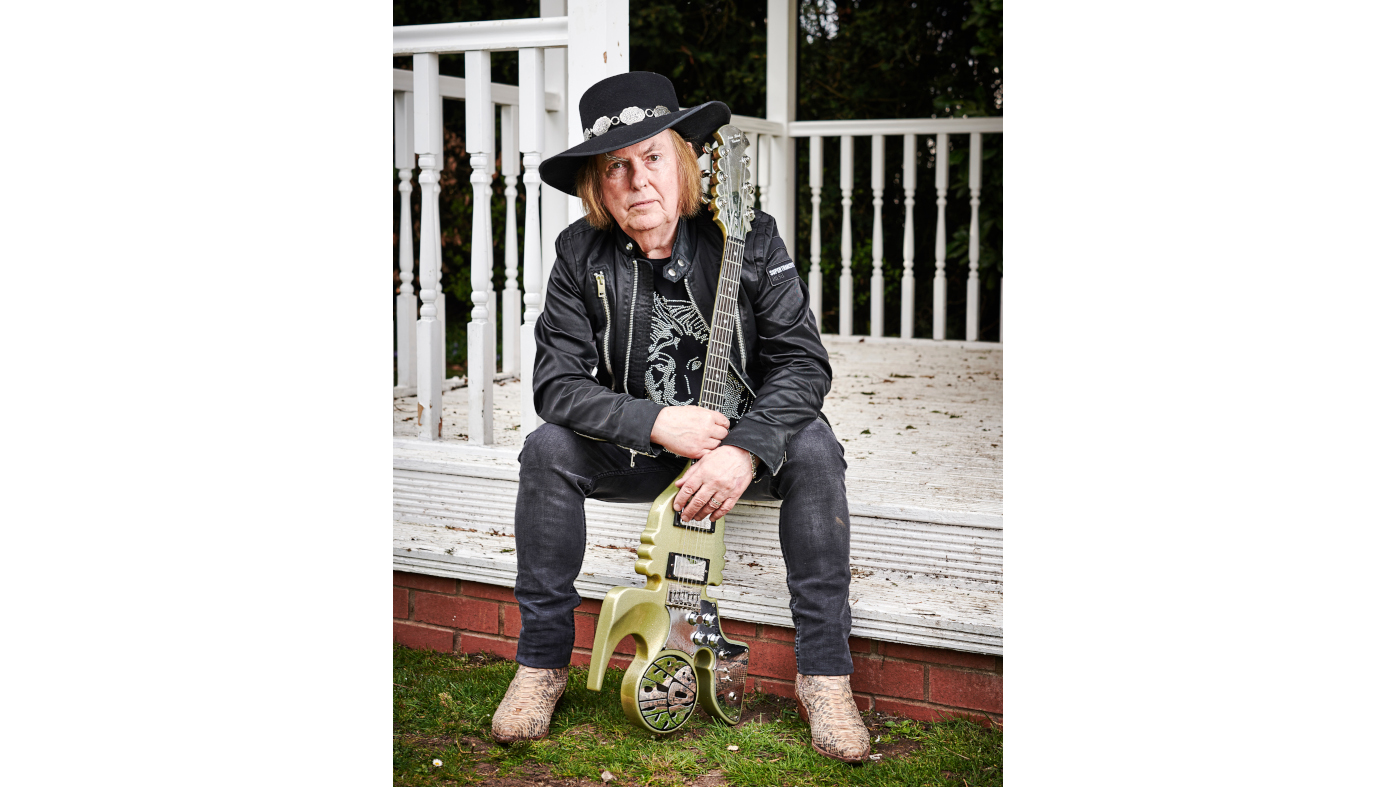
Slade Rebooted
“In 1992, I had a phone call from Suzi Quatro’s ex-husband [Len Tuckey]. He’d just divorced from Suzi and he rang me up to ask how I was doing. I said, ‘I’m in a very awkward position. Nod’s left the band, Jim doesn’t want to do it, and there’s just me and Don left.’ I didn’t want the band to break up. But it did. It was a really odd time. The hits we’d had in the 80s had sort of dried up and I was trying to form another band.
“I don’t know whether Len thought of me because he’d read the Guitarist magazine feature I’d just done with [editor] Neville Marten back then, but it was a phone call out of the blue and he said, ‘Don’t go back to the pubs; you’re Dave Hill from Slade - that’s what you should do.
"Use the name that everybody knows you for,’ and that drew me back to everything that I’d done in my life. Of course, it was hard, because I was used to having Noddy with me, but Len became something of a Chas Chandler. He focused me. And then Neville recommended a singer [Steve Whalley], so we tried him out and he joined.
“I’m still friends with Nod, but it was hard carrying on without him. I mean, it’s bound to be difficult when somebody leaves and you’re still into it. Going back out on the road with new people was very strange. It was a bit awkward at first and a bit scary, but it was exciting.
"Since then, I’ve been driving forward with Slade - the thing I know. And that’s where I am now. As time moves along, people sometimes dismiss what happened, but, when I look back, I realise that perseverance made me the musician I am today.”
Dave Hill’s autobiography, So Here It Is: How the Boy From Wolverhampton Rocked the World With Slade, is available now.
Rod Brakes is a music journalist with an expertise in guitars. Having spent many years at the coalface as a guitar dealer and tech, Rod's more recent work as a writer covering artists, industry pros and gear includes contributions for leading publications and websites such as Guitarist, Total Guitar, Guitar World, Guitar Player and MusicRadar in addition to specialist music books, blogs and social media. He is also a lifelong musician.
“I’m drawn to melody and drama - AOR and yacht rock”: Tobias Forge says the new Ghost album combines smooth ’80s sounds with Black Sabbath-inspired lyrics
"The demo had my singing on it. When I played it to the band, the look on their faces said, 'We’re in trouble, boys'": Mike Rutherford and producer Chris Neil remember the making of Mike & The Mechanics' All I Need Is A Miracle


